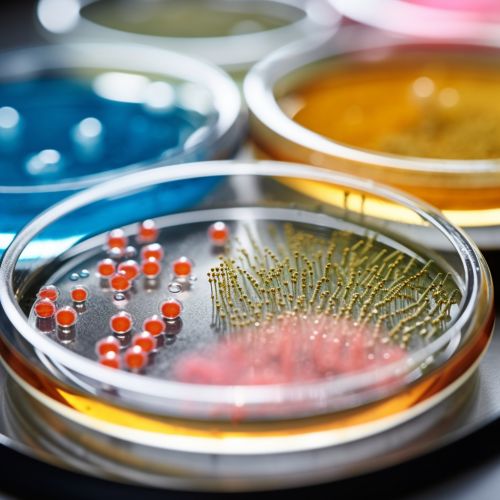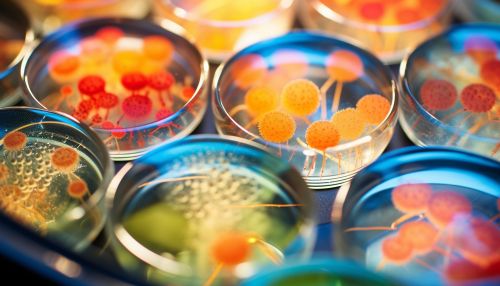The Role of Microbial Synthetic Biology in Biomanufacturing
Introduction
Microbial synthetic biology is a rapidly developing field that uses engineering principles to design and construct new biological parts, devices, and systems, or to redesign existing natural biological systems for useful purposes. It plays a crucial role in biomanufacturing, the process of using biological systems to produce commercially important biomaterials and biomolecules for use in medicines, industrial enzymes, biofuels, and other products.


Microbial Synthetic Biology: An Overview
Microbial synthetic biology involves the manipulation of microorganisms such as bacteria, yeast, and algae to produce desired products. This is achieved by altering their genetic material, often through the use of recombinant DNA technology, to create "designer" microorganisms. These engineered microorganisms can then be used in biomanufacturing processes to produce a wide range of products, from pharmaceuticals to biofuels.
Role in Biomanufacturing
Microbial synthetic biology has a significant role in biomanufacturing due to its ability to create efficient, sustainable, and cost-effective production processes. This is achieved through the design and engineering of microorganisms to optimize their metabolic pathways, thereby enhancing their productivity and yield.
Production of Pharmaceuticals
One of the key areas where microbial synthetic biology is utilized in biomanufacturing is in the production of pharmaceuticals. Engineered microorganisms can be used to produce a variety of therapeutic compounds, including antibiotics, anticancer drugs, and vaccines. For example, E. coli bacteria have been engineered to produce insulin, a hormone used in the treatment of diabetes.
Production of Industrial Enzymes
Microbial synthetic biology also plays a crucial role in the production of industrial enzymes. These enzymes, which are used in a variety of industries including food, textile, and paper, can be produced in large quantities by engineered microorganisms. This not only reduces the cost of production but also allows for the creation of enzymes with specific properties tailored to particular industrial processes.
Production of Biofuels
The production of biofuels is another area where microbial synthetic biology is making a significant impact. Engineered microorganisms can be used to convert biomass into biofuels, providing a sustainable and environmentally friendly alternative to fossil fuels. For example, engineered strains of yeast can be used to produce ethanol from plant material.
Challenges and Future Directions
Despite the significant advances in microbial synthetic biology, there are still several challenges that need to be addressed. These include the need for improved methods for the design and construction of synthetic biological systems, as well as the need for better understanding of microbial physiology and metabolism.
Looking forward, microbial synthetic biology is expected to continue to play a crucial role in biomanufacturing. With ongoing advancements in technology and our understanding of microbial systems, the potential applications of microbial synthetic biology in biomanufacturing are vast and exciting.
